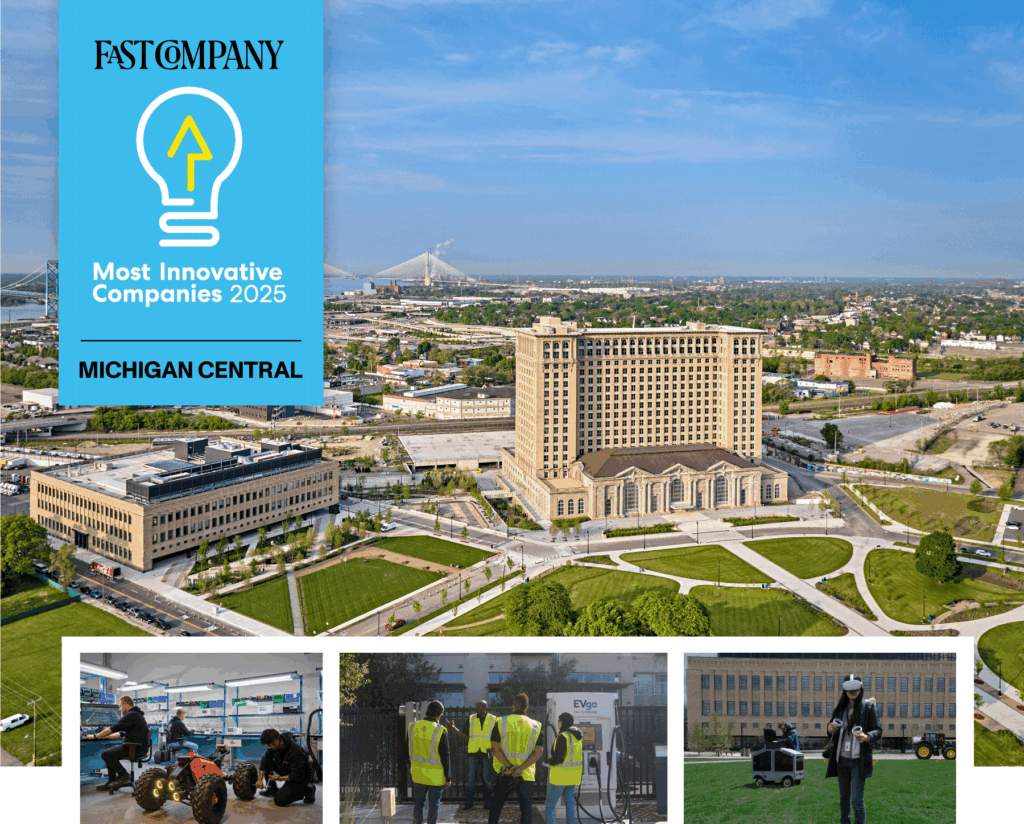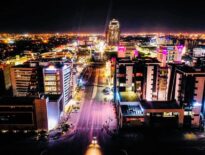
Article Highlights
Steel-Belt Beginnings & Motown Beats: Why Detroit Built Everything from Ford to Funk
Long before it became a symbol of rust a city off track, Detroit was a strategic settlement founded in 1701 by Antoine de la Mothe Cadillac at Fort Pontchartrain du Détroit, a riverfront trade nexus between French Canada and the Great Lakes. I want to explore Detroit with you, economically, for a few reasons; in particular, the fact that as a lesson to every city, Detroit announced this week an intention to close the gap they have on a couple of the pillars of economic development of startups. Join me to learn about Detroit but also to learn what you might address better where you live.
Rebuilt after the 1805 fire, the city was shaped into a grid of broad avenues by Augustus Woodward, borrowing principles from Washington, D.C., and became the nerve center for Michigan Territory by mid-19th century. Its border status made it a key stop on the Underground Railroad, embedding a foundational culture of escape, resilience and reinvention.
Imagine the possibilities given that collision of people. In the early 20th century, Henry Ford’s Highland Park Plant and its revolutionary assembly line turbocharged mass-manufacturing, instantly transforming Detroit into the Motor City and the epicenter of a global auto economy. The city surged to become the fourth-largest in the U.S. by 1920, thanks to high-volume consumer auto production fueled by Great Lakes shipping and rail (infrastructure).
As a result, Detroit’s cultural ecosystem blossomed. As the factories hummed, Black Americans migrating from the South infused the city with music, leading to the birth of Motown in the 1950s, the soundtrack of civil rights and commercial crossover. These melodies weren’t just catchy; they were proof that Detroit’s DNA combined industrial muscle with creative soul. The roots of entrepreneurship.
The Engine of Culture Fuels Startup Spirit
Detroit reminds us that a startup hub isn’t a place filled with code labs and ping-pong tables. It’s a cultural crucible, where music, manufacturing, and creative expression converge. Motown wasn’t Silicon Valley, but Ford was a groundwork of innovation; music disrupted the social order, establishing the makings of really matter (innovation and creativity underpinnings) just as we’ve seen and I’ve written about in exploring Silicon Valley, Austin, or Manchester – this is how Detroit startups will disrupt traditional sectors today.
The decline that peaked in the 2013 bankruptcy, followed by the “Grand Bargain” saving the Detroit Institute of Arts, pensioners, and public assets in 2014, was key turning point. Figures like Dan Gilbert of Quicken Loans moved headquarters downtown, bought cheap skyscrapers, and brought in big employers. That sparked a revival in downtown Detroit, with restaurants, design firms, Shinola, Chalkfly (now as Purpose Jobs), and more, filling the formerly empty towers.
Fast forward: Detroit is now ranked as the second-fastest growing global ecosystem in recent years, with a boom in startups in mobility, AI, advanced manufacturing and health tech. The pivot from cars, with creativity, shows that Detroit lives at the crossroads of hardware, software, and storytelling.
By the way, I’m a Michigan kid driving home here, if you will.
Growing up near 9 Mile Road in Farmington Hills where I went to Gill Elementary, I lived the shifting narrative of Detroit from afar: the white-knuckled traffic on I-696 to the changing skyline. Michigan remains an important part of my story in public affairs and economic development, with my roots there then experiencing Silicon Valley before Texas. Michigan has ever since, to me, felt raw, hopeful, and full of underleveraged innovation potential.
Today’s Industry Strengths in Detroit
Metro Detroit isn’t just about three-component car assembly anymore. Key industry verticals today include: advanced manufacturing, robotics, mobility tech, AI & data analytics, healthcare & life sciences, cybersecurity, and CivicTech. CivicTech notably one that I’d point out (as well as robotics) because it reflects for you how a city *should* focus entrepreneurs and capital toward the sectors ideal to existing strengths and opportunities – Detroit rebuilding somewhat parallels my encouragement that realize both are ideal for property / real estate related tech, far more than any larger or better funded hub, because both are actively developing space. In Detroid, about 215 startups emerged since 2018, with roughly 58 that I dug up in pure tech sectors (AI auto repair, insurtech, crypto, cybersecurity, etc.). The ecosystem is backed by anchor institutions like Michigan Central Station, now a hub with over 140 startups, dozens of venture partners, and proximity to mobility giant Ford and co-location with Google innovations.
Startup Development Organizations & Incubators
Detroit hosts a vibrant array of support organizations. Noteworthy players include Ponyride, a nonprofit incubator for artists, makers, and social entrepreneurs since 2011, offering coworking, child care, events, and community incubation. Techstars Mobility/Detroit once incubated mostly mobility startups until 2019 and then Techstars Detroit Powered by JP Morgan invested in an additional 70+ industry agnostic founders starting in 2021 and just finished deploying in 2024. Future local Techstars programs are being considered. Until then, the other primary program that should be found in a city, Founder Institute, continues active pre-seed stage cohorts helping turn would-be entrepreneurs and working professionals into founders, aligning with other startup support networks like GrowthMentor’s Detroit City Squad. Other startup ecosystem builders include NextUp 313, Motor City Match, the Detroit Legacy Business Project.
The University of Michigan in Ann Arbor (about 40 miles west) is a key pipeline for talent, research, and startup spinouts in mobility and life sciences. I point out the distance because it’s critical that city leaders, for the sake of entrepreneurs and investors, think regionally and not locally, there is a reason why “Silicon Valley” constantly appears in PitchBook as so much more substantial than Chicago or Kansas City; spread over 45 miles, we’re not talking about startups in San Francisco. U-M leadership in driverless cars and materials science makes it a major academic anchor for the region.
Venture Capital in Michigan / Detroit
Detroit lags compared to most standards; we have to be honest about that if we’re going to focus on what needs to be fixed. Good news, if deployed properly, it punches above its weight via corporate VC arms (e.g., Ford’s support of Fontinalis Partners, GM’s mobility investments) and local VCs increasingly focusing on mobility and energy transition. Ford’s Michigan Central station project alone houses ~20 VC firms and startup ventures in co-location with Ford and Google collaboration space. Investment remains nascent but steadily growing in AI and robotics with a local flavor.
How Detroit Stacks Up Against the Six Startup Economic Development Considerations
Referencing the 6 Considerations of the Economic Development of Startups, Detroit’s ecosystem demonstrates strengths and areas needing remediation.
- Access to capital: Detroit still struggles with early stage capital relative to metro size, though new city back grants and corporate VC arms are changing that.
- Talent availability: Buoyed by U-M, Wayne State, local colleges, and returning diaspora, Detroit has solid technical talent, with neighborhoods like Corktown creating some attraction.
- Industry relevance: Detroit nails this – advanced manufacturing, mobility, AI, and healthcare, are aligned to historic and modern strengths.
- Infrastructure & regulatory ecosystem: Projects like Michigan Central station, the M-1 Rail streetcar (still under construction), and revitalized property help, but transit and broadband remain inconsistent throughout.
- Cultural vibrancy: From Motown to design festivals to startup coworking in buildings once factories, Detroit scores high.
- Support networks: With DEGC | Detroit Economic Growth Corporation, Motor City Match, Ponyride, NextUp 313, and incubators, the ecosystem has foundation, but more high-metric accelerator footprint is needed.
Detroit handles culture, sector fit, and infrastructure well; it needs more access to seed and series A capital, broader geographic diffusion of opportunity, and deeper structured accelerators calling it home.
Detroit’s New $700K Startup Fund: Breaking News
On July 28, 2025, Detroit officially launched its first of its kind Detroit Startup Fund, a $700,000 grant initiative supported by the city’s general fund and administered via the Detroit Economic Growth Corporation (DEGC). The program will award 26 grants over the next year: 20 seed grants of $15K and 6 scale grants of $50K to Detroit-based tech startups, with the goal of spurring job creation, retaining local talent, and generating at least $1 million in measurable economic impact.
Reflecting the right elements of an intentional ecosystem, collaboration, support, and presence, the announcement took place at Newlab at Michigan Central Station and was attended by Mayor Mike Duggan, DEGC president/CEO Kevin Johnson, and City Council President Mary Sheffield. Duggan emphasized hopes for consistent future funding, comparing it to Motor City Match’s track record.
“Detroit has always been a place of innovation and today we are doubling down on that legacy… where dreams become economic engines.” – City Council President Mary Sheffield.
Council At-Large member Mary Waters added that entrepreneurs’ success benefits entire communities, not just downtown block, while council member, Fred Durhal III, emphasized the city’s shift from traditional auto industry jobs toward new thinking, technology, and local retention of talent.
Applications opened July 28 and close August 25, 2025
What This Fund Means (and What Should Come Next)
The fund addresses two of Detroit’s most urgent ecosystem gaps: early stage capital and talent retention. It signals that the city is willing to bet on its own innovators, not just subsidize outsiders moving in. The risk: $700K is modest capital for startup scale but positioning and symbolism matter. If Detroit builds track record, rounds can grow; the city can leverage this proof point to attract state and federal matches, corporate partnerships (like Ford or GM), and more.
What Detroit must follow through on: financially supporting the existing startup development organizations and ecosystem builders and developing accelerators with structured mentorship; scaling bridge capital from seed to Series A; and expanding reach throughout the region. That’s how the six consideration framework becomes fully operational.
Startup Detroit: From Cranks to Code
Detroit’s DNA, the assembly-line ingenuity of early auto giants, the soul-stirring melodies of Motown, the symbol of decline in bankruptcy and urban breakdown, has always been about rhythm and reinvention. Today’s startups are the new music: software-enabled industrial companies, AI-powered mobility services, civic tech built for neighborhoods. With assets like the University of Michigan, DEGC leadership, and now a city-backed startup grant, Detroit is finally syncing its cultural beat with startup velocity.
Detroit has stories etched in steel, stone, and song and it’s the history and lessons in these experiences that enable “tech” to be more than engineers.
More than a curiosity, Detroit is a case study in how manufacturing muscle plus cultural heartbeat plus civic grit create startup momentum that other legacy cities only dream about. If you’re an ecosystem steward, investor, entrepreneur, or a Michigan native like me reflecting on Gill Elementary down 9 Mile, ask yourself: how can local capital better support founders but funding the ecosystem? How do we build accelerators with staying power and outcome-based expectations? And how can Detroit teach the rest of the world about the impact of grit, humility, and real economic inclusion?
Rev the engine, crank the startups, and let Detroit teach us how to startup again (yeah, I can be smarmy, deal with it)
Image Credit: Detroit Skyline Sunset by Christopher Arndt




Phenomenal insight as always Paul!
Paul, as another Farmington Hills kid (13 Mile here), I’ve been hearing variations of this Detroit startup story every few years for the past decade. I’ve even tried to help a handful of times – connecting entrepreneurs, making introductions, looking at deals.
The passion is always there, and the cultural assets you describe are real. But that $700K fund? I’ve seen similar announcements before, and the math still doesn’t work – $27K per startup isn’t transformative capital, it’s symbolic.
The “second-fastest growing ecosystem” claim feels familiar too. Growing from a small base can create impressive percentages that don’t reflect absolute progress.
Detroit genuinely has manufacturing depth and automotive expertise other cities would kill for. But every time I’ve engaged, the same gaps persist: limited early-stage capital, talent flight to the coasts (most of our Michigan friends are still out there), and infrastructure challenges.
I want to see Detroit succeed, which is why I keep paying attention. But after multiple cycles of similar announcements, what makes this moment different? What are the concrete next steps beyond grants that address the structural issues?
BrandonDavid Hawkins cheers – going to keep digging deeper on cities
Ashley Trick Appreciate this deeply (maybe especially from a fellow Farmington Hills kid). You’re absolutely right: many cities, including Detroit, seem stuck in a cycle of optimism without ever resolving the structural issues that hold back real startup growth.
You asked what concrete steps are needed… I’m honestly a bit confused, since I did outline them in the piece: outcome-driven accelerators and access to mid-stage capital (Series A).
Most cities, by the way, have an “Accelerator” but they’re not outcome expectation based so they’re little more than startup event hubs. The thing should ONLY be supported (let alone funded) if it is clearly resulting in more venture capital invested AND successful ventures coming out of programming. 9 in 10 startups fail…. if the Accelerator doesn’t make that 8 in 10, shut it down. Outcomes, not theater.
Failing to address the gaps is what keeps cities repeating regardless of a new fund, new incubator, or new local leaders who are willing to take up the mantle and get it right.
That said, I totally get that your question might be directed more at the community than at me personally; in that case, I’m with you 100%. Most ecosystems aren’t solving this because they don’t know how, or they don’t build the kind of systemic cohesion required to align around actual solutions.
One piece I didn’t get into but should have: Detroit–Ann Arbor needs a more aggressively inclusive online community (probably on LinkedIn at this point. Austin used Facebook groups to force awareness and engagement, but that doesn’t work now). What matters is neutrality: promoting everything happening without bias, openly discussing what’s working and what’s not, and excluding noise. And by noise, I mean business events, promo posts, or small biz sales offers that distract founders. If it’s not startup, it’s not helping, and too many cities don’t draw that line.
I wish we had something like this in Australia. Our manufacturing has all been chased off-shore, welfare has replaced full time jobs and our politicians spend their time cosying up to the UN and China
Manufacturing is the future. Well done Detroit and the people who had the vision to invest back into steel city